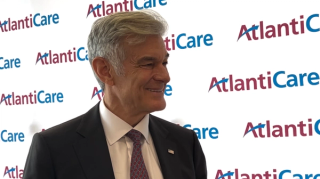
Health Care Cost
Latest News
Latest Videos

Podcasts
CME Content
More News

UC Davis Health enhances patient care through a shared services center, ensuring continuity of care and optimizing pharmacy growth strategies.

Robert Andrews, CEO of the Health Transformation Alliance, addresses Medicaid rebates, cost-shifting concerns, and value-based pricing trends.

Robert Andrews, CEO of the Health Transformation Alliance, discusses the implications of the new TrumpRx platform on drug pricing policy.

Public health must address emotional and structural inequities, emphasizes Perry N. Halkitis, PhD, MS, MPH, dean of the Rutgers School of Public Health.

Today, Amgen announced the launch of AmgenNow, a direct-to-patient program offering evolocumab (Repatha) at nearly 60% below the current US list price.

This article examines how prices, insurer payments, and patient payments for outpatient surgeries differ by site of care and network status.

Stronger partnerships between primary care and oncology improve patient outcomes by ensuring coordinated care and addressing financial and systemic barriers, says Mark Fendrick, MD.

This national study of neonatology services found no clear evidence that state surprise billing regulations influenced prices or provider network participation for the commercially insured.

To mark the 30th anniversary of The American Journal of Managed Care, each issue in 2025 includes a special feature: reflections from a thought leader on what has changed—and what has not—over the past 3 decades and what’s next for managed care. The October issue features a conversation with Ge Bai, PhD, CPA, professor of accounting at Johns Hopkins Carey Business School and professor of health policy and management at Johns Hopkins Bloomberg School of Public Health in Baltimore, Maryland.

Although overall costs have not declined with the Oncology Care Model (OCM), supportive care costs have decreased through greater use of cost-effective therapies.

An eHealth survey revealed widespread confusion, low awareness of 2026 Medicare plan changes, and growing interest in artificial intelligence support.

Several actions taken by the current administration may affect the landscape of prevention of HIV, prompting an analysis of these effects.

The Trump administration advances the Most Favored Nation order by partnering with Pfizer, which came to the table voluntarily and has been granted a reprieve from upcoming drug tariffs.

Hope Krebill of the Masonic Cancer Alliance at the University of Kansas Medical Center outlines patient navigation models that improve outcomes and reduce missed appointments.

There are clear benefits to starting biologic therapy earlier for severe asthma, as well as initiation patterns by ethnicity, according to data at ERS Congress 2025.

Laxmi Patel urges rural hospitals to align leadership early and build logic models to show how transformation funds can drive access, equity, and sustainability.

In a time of skyrocketing oncology drug costs, the role of pharmacists in managing patients’ treatment and keeping care in the outpatient setting is more urgent than ever.

Laxmi Patel urges hospitals to embed financial screening and simplify payment options to prepare for rising levels of uninsured patients from Medicaid changes.

Consolidation in oncology is creating access and cost challenges, whereas advocacy helps improve patient care and treatment availability, according to Sucharu "Chris" Prakash, MD.

The program works by embedding Medbridge’s Pathways platform into Marathon’s MoveWell MSK program and advanced primary care model.

Adherence can lead to better outcomes, higher starts for Medicare Advantage plans, and stronger financial performance.

Any potential reduction in access to pre-exposure prophylaxis (PrEP) would increase both cost and the number of diagnoses of HIV.

Funding cuts to childhood cancer research have put the subspecialty in a precarious position during Childhood Cancer Awareness Month.

Medicare beneficiaries with near low income struggle most with health care affordability, highlighting gaps in financial assistance programs.

Laxmi Patel outlines how Medicaid reforms could raise bad debt, urging providers to strengthen financial counseling, assistance, and price transparency.






















